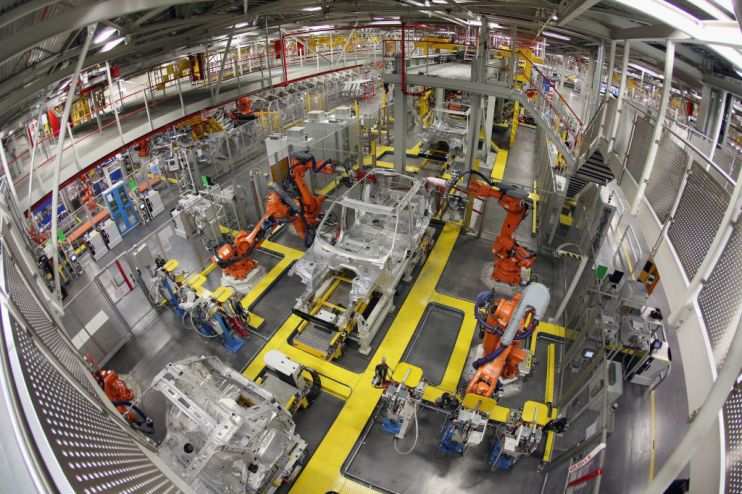UK PMI: Manufacturing malaise sinks economy to 41-month low

Private sector activity in the UK slumped again in December, dragged down by the fastest drop in manufacturing output since July 2012.
Overall UK output dropped to 48.5 in December from 49.3 the previous month, hitting a 41-month low, according to the UK’s flash composite purchasing managers’ index (PMI), compiled by IHS Markit.
Read more: Eurozone PMI: Economy mired in worst spell since 2012
The reading is well below the estimated figure of 49.5. Any reading below 50 on the index indicates a contraction.
“December’s PMI survey data sadly lacked festive cheer, indicating that the economy contracted for the third time in the past four months,” said IHS Markit chief business economist Chris Williamson.
“The latest decline was the second largest recorded over the past decade, and increases the likelihood that the economy contracted slightly in the fourth quarter as Brexit-related uncertainty intensified in the lead up to the General Election,” said Williamson.
Manufacturing output fell to 45.8 in December, while UK manufacturing dropped to 47.4, well below the expected 49.2.
Manufacturing output is now falling at a rate that has only been exceeded once since the height of the financial crisis in 2009.
Services data also disappointed at 49, compared to an expected 49.5.
This means that service sector output has fallen in both of the past two months – the first back-to-back declines for the sector since 2009.
Survey respondents overwhelmingly blamed uncertainty over domestic politics and Brexit, as well as subdued global economic conditions, for the slump in business activity, according to IHS Markit.
“The continuing Brexit-related aversion to investment and a pre-election lack of consumer confidence led to the fastest fall in business activity in December since July 2016,” said Duncan Brock of the Chartered Institute of Procurement & Supply, which helped compile the data.
“Any vestiges of hope are now pinned on the election results as the potential for reducing uncertainty may restore confidence in the months ahead,” he continued.
“But the Brexit path is still littered with obstacles and the need for strong negotiation skills for a future EU agreement will be paramount to avoid this downward slide becoming the economic landscape for an extended period.”
Figures released earlier this morning showed Eurozone activity narrowly missed estimates for December.
Read more: UK economy sent ‘staggering’ as services sector shrinks ahead of election
Manufacturing activity in the bloc dipped below estimates while services did slightly better than expected, keeping the composite figure at 50.6.
Flash PMI figures from Germany today also showed that the pace of the country’s factor slowdown has quickened, dragging its composite PMI reading for December below expectations.